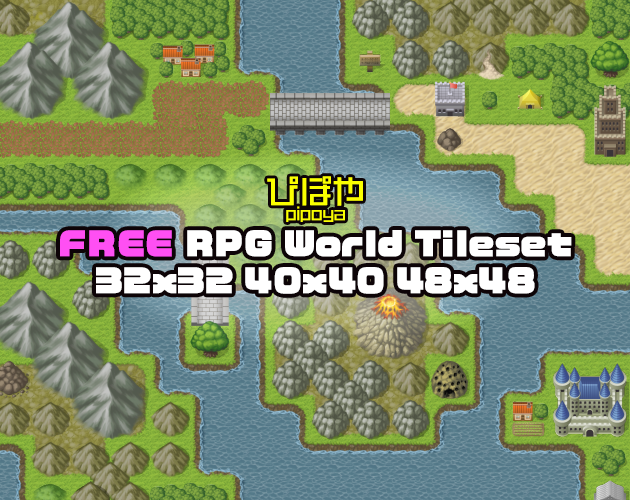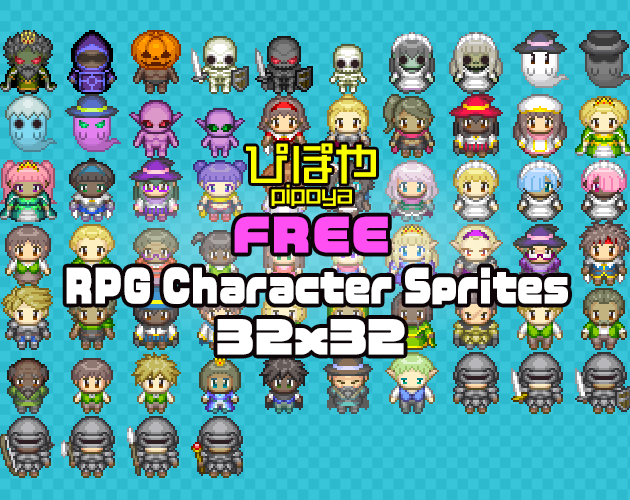A game inspired by old school jRPGs to teach basics in Unity Game Development and C# programming.
This project makes use of:
- tilesets
- spritesheets
- basic c# classes
Item.cs othewise known as the class (does not need to be in the scene)
class Item
{
private string name;
public string Name
{
get {return name;} // get method
set {name = value;} // set method
}
private string description;
public string Description
{
get {return description;}
set {description = value;}
}
public int cost;
public int Cost
{
get {return cost;} // get method
set {cost = value;} // set method
}
}ItemManager.cs (Unity Monobehavior on an item in the scene)
using System.Collections;
using System.Collections.Generic;
using UnityEngine;
public class ItemManager : Monobehavior
{
Item myItem = new Item(); // Construct a new Item
void Start()
{
myItem.Name = "Stick"; // Give the item a name
myItem.Cost = 2; // Give the item a cost
myItem.Description = "It's a stick" //Give the item a description
//Print Item Name, Description and Cost to the Console
Debug.Log("My Item's Name: " + myItem.Name);
Debug.Log(myItem.Name + " Cost: " + myItem.Cost);
Debug.Log(myItem.Name + " Description: " + myItem.Description);
}
void Update()
{
}
}What about in regular C# ?
class Program
{
static void Main(string[] args)
{
Item myItem = new Item(); // Generate new Item
myItem.Name = "Health Potion"; // Give the item a name
myItem.Cost = 50; // Give the item a cost
}
}
W3 schools notes on C# properties
W3 schools notes on C# methods
Classes can have methods that are specific to that class. We can add one to our Item class to set the price that a vendor will accept to purchase an item.
// Method to Sell items at half cost
public int Sell()
{
return cost/2; //
}Add this Debug.Log() to ItemManager to see this method in action
//Show Sell price
Debug.Log(myItem.Name + " is worth " + myItem.Sell() + " at a merchant.");Constructors are used to initialize objects in specific ways.
Without a constructor on Item when you initalize a new item
public Item myItem = new Item();you create a new Item where:
myItem.name = null
myItem.cost = nulland we have to give name and cost value manually by saying
myItem.Name = "Stick";
myItem.Cost = 2But with a constructor we can make sure every new item starts off as a stick
public Item() //default constructor
{
name = "Stick"
cost = 2
description = "It's a stick"
}So now running the default constructor again
public Item myItem = new Item();will initialize the name to Stick and the cost to 2 automatically.
If we go to our ItemManager script and remove
myItem.Name = "Stick"; // Give the item a name
myItem.Cost = 2; // Give the item a cost
myItem.Description = "It's a stick" //Give the item a descriptionfrom Start() and run your scene you will notice that you still get the same output as before. The constructor is creating a stick for you.
We can add arguments to make it so that we can create any item we want with the constructor also.
Back in Item.cs lets add another constructor under our last one.
public Item(string aName, int aCost)
{
name = aName;
cost = aCost;
description = name + " has no description yet.";
}This time we are adding two arguments to the Item constructor a string calle aName and an int called aCost. This will allow us to pass any string for a name and any int as a cost.
Back in the ItemManager Script lets adjust this line
public Item myItem = new Item();to
public Item myItem = new Item("Rock", 6);Then play your scene again and it should show that items name is Rock, it Cost 6 and it is worth 3 at a vendor
We have done basic items but what about other items that we could have in an inventory like Consumables, Weapons (Swords, Axes, Staffs, Wands), and Armor. Each one of these categories is a bit unique and will require different properties.
Using our Item class as a base we can create all of these other item types without having to duplicate the work that we did with the item class. Basic items all have a name, a cost, a description, and a sell value that is generated from the Item Method Sell().
Since consumables, weapons, and armor are all items they can be said to inherit from the item class. Then all you have to do is add what's unique about each for instance:
Consumables need HPGain & MPGain Weapons needs Type, MinDamage, MaxDamage Armor needs Type, ArmorBonus, Resistance
So the weapon class would look something like:
public class Weapon : Item
{
public int minDamage;
public int maxDamage;
public int durablitiy;
public WeaponType type;
public int Attack()
{
return Random.Range(minDamage, maxDamage);
}
}Free RPG World Tileset 32 x 32, 40 x 40, 48 x 48 Author: Pipoya
https://pipoya.itch.io/pipoya-free-rpg-world-tileset-32x32-40x40-48x48
Free RPG Character Sprites 32 x 32 Author: Pipoya
https://pipoya.itch.io/pipoya-free-rpg-character-sprites-32x32


